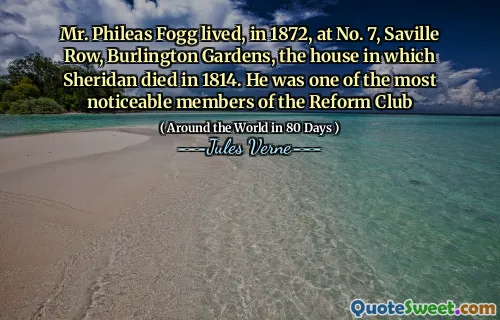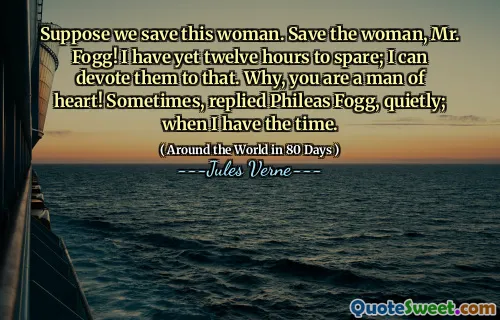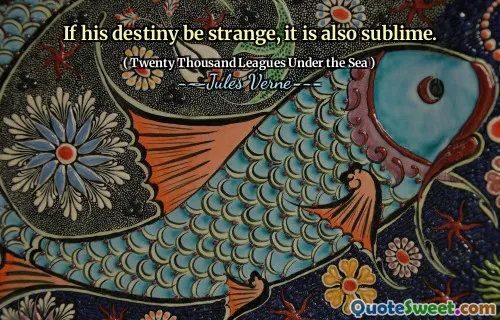Jules Verne was a pioneering French author famous for his adventure novels and contributions to the science fiction genre. He was born on February 8, 1828, in Nantes, France. Verne's early experiences and fascination with exploration and technology greatly influenced his writing. His works often featured innovative inventions and fantastical journeys that captured the imagination of readers. Notable books include "Twenty Thousand Leagues Under the Sea," where Captain Nemo explores the depths of the ocean, and "Around the World in Eighty Days," which follows Phileas Fogg's race against time. Verne's storytelling combines elements of adventure with scientific principles, making his narratives both thrilling and educational. He meticulously researched various fields, including geography, engineering, and astronomy, allowing him to create believable worlds and scenarios. His ability to predict future technological advancements, such as submarines and space travel, solidified his reputation as a visionary and a prophet of science fiction. Jules Verne's legacy endures through his imaginative tales that inspire countless adaptations in film, theater, and other media. His influence can be seen in the work of many subsequent writers and creators in the science fiction genre. Verne passed away on March 24, 1905, but his stories continue to captivate audiences and fuel the spirit of exploration and curiosity in generations of readers.
Jules Verne was a pioneering French author famous for his adventure novels and contributions to the science fiction genre. He was born on February 8, 1828, in Nantes, France. Verne's early experiences and fascination with exploration and technology greatly influenced his writing. His works often featured innovative inventions and fantastical journeys that captured the imagination of readers. Notable books include "Twenty Thousand Leagues Under the Sea," where Captain Nemo explores the depths of the ocean, and "Around the World in Eighty Days," which follows Phileas Fogg's race against time.
Verne's storytelling combines elements of adventure with scientific principles, making his narratives both thrilling and educational. He meticulously researched various fields, including geography, engineering, and astronomy, allowing him to create believable worlds and scenarios. His ability to predict future technological advancements, such as submarines and space travel, solidified his reputation as a visionary and a prophet of science fiction.
Jules Verne's legacy endures through his imaginative tales that inspire countless adaptations in film, theater, and other media. His influence can be seen in the work of many subsequent writers and creators in the science fiction genre. Verne passed away on March 24, 1905, but his stories continue to captivate audiences and fuel the spirit of exploration and curiosity in generations of readers.
More »
Today Birthdays
1955 -
Max Lucado
1946 -
John Piper
1842 -
William James
1907 -
Abraham Joshua Heschel
1887 -
Aldo Leopold
1755 -
Alexander Hamilton
1976 -
Alethea Kontis
1971 -
Mary J. Blige
1825 -
Bayard Taylor
1943 -
Jim Hightower
1885 -
Alice Paul
1923 -
Carroll Shelby
1928 -
David L. Wolper
1954 -
Kailash Satyarthi
1972 -
Amanda Peet
1946 -
Naomi Judd
1970 -
Malcolm D. Lee
1955 -
Christian Marclay
1973 -
Rahul Dravid
1987 -
Jamie Vardy
1942 -
Clarence Clemons
1992 -
Fatima Sana Shaikh
1948 -
Larry Harvey
1930 -
Rod Taylor








